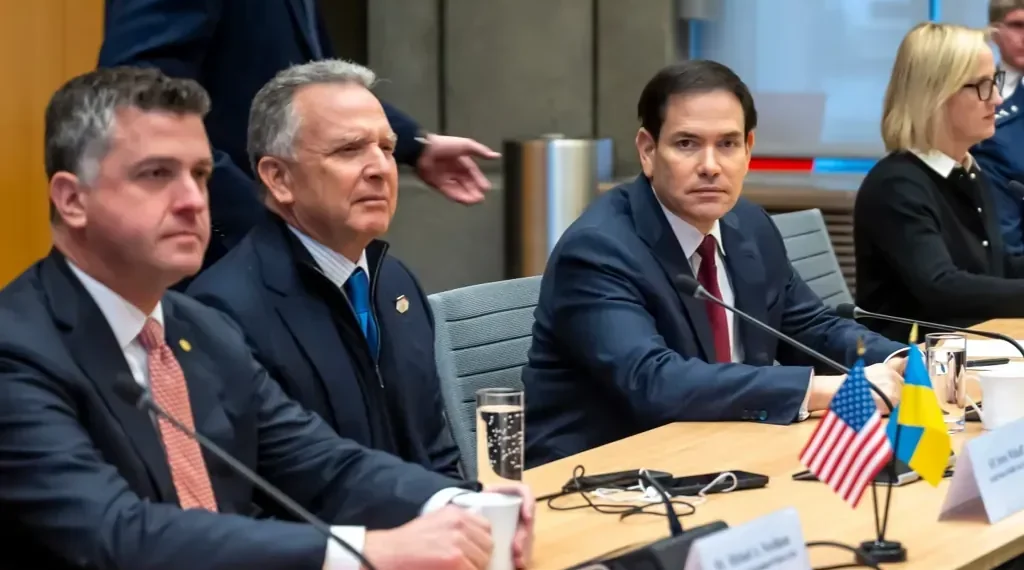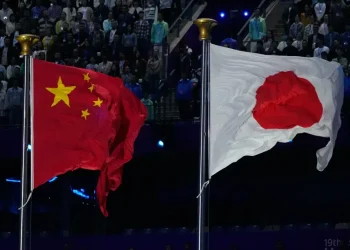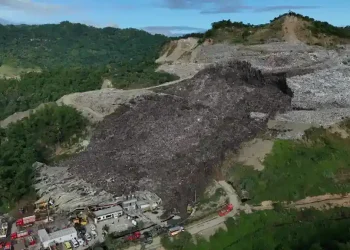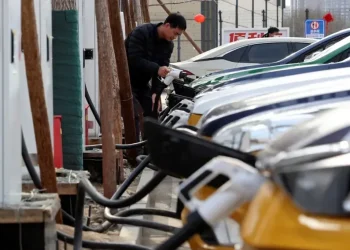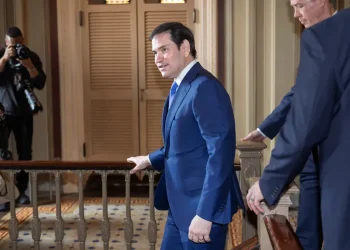US–Ukraine Geneva Talks Show ‘Worthwhile’ Progress as Debate Over Peace Plan Intensifies
U.S. and Ukrainian officials said discussions in Geneva on a proposed peace framework to end Russia’s nearly four-year war in Ukraine made meaningful progress, though few specifics were released. The high-level talks come as Washington’s European allies raise concerns that key elements of the U.S. blueprint may be too accommodating to Moscow. Ukraine says its core security and sovereignty concerns are being addressed.
Progress Reported After High-Level Meetings in Geneva
U.S. Secretary of State Marco Rubio described the weekend discussions as the most constructive in “a very long time,” saying the session was “very worthwhile” and left him optimistic that a path forward is possible. Speaking after the meeting, Rubio avoided detail but emphasized that negotiators could continue working through Monday and beyond, despite a Thursday deadline set by President Donald Trump for Kyiv to formally respond to the proposal.
Rubio said the process remains sensitive and involves issues ranging from technical language to decisions requiring higher-level political approval. He noted that while progress was encouraging, several items still needed time and consultation.
The U.S. has put forward a 28-point plan aimed at ending the conflict, which began with Russia’s full-scale invasion in early 2022. The proposal has raised alarm in Kyiv and across European capitals over fears that elements may force Ukraine into concessions it has long rejected, including ceding territory occupied by Russian forces.
Ukrainian President Volodymyr Zelenskyy has repeatedly stated that Ukraine will defend its sovereignty and cannot accept deals that undermine its territorial integrity.
White House Says Ukraine’s Core Concerns Are Being Addressed
In a statement released Sunday evening, the White House said Ukraine’s delegation affirmed that key priorities — including security guarantees, long-term economic support, critical infrastructure protection, freedom of navigation, and political sovereignty — were thoroughly discussed.
According to the statement, amendments were made to ensure the emerging framework aligns with Ukraine’s national interests and includes mechanisms to safeguard the country’s security in both the short and long term.
This reassurance came after a bipartisan group of U.S. senators said Rubio had indicated that the original proposal resembled a Russian “wish list.” Those claims contributed to mounting European unease over the direction of the peace plan.
German Chancellor Friedrich Merz said he told President Trump that Europe remains aligned with Ukraine and that Ukrainian sovereignty “must not be jeopardized.” He added that some parts of the proposal could be acceptable to European countries, while others would not.
U.S. Says Plan Still Evolving; Kyiv Cites ‘Good Progress’
Rubio defended the proposal as a “living breathing document” subject to continuous revision. Any final version, he stressed, would still need to be presented to Russia — noting that “the Russians get a vote here.”
Andrii Yermak, chief of staff to President Zelenskyy and head of Ukraine’s delegation, echoed Rubio’s positive tone, saying the conversations had produced “very good progress” toward a sustainable peace.
The upbeat assessment contrasted with earlier comments and social-media posts by Trump, who criticized Ukraine for a perceived lack of gratitude for U.S. military support. Despite his Thursday deadline, Trump suggested it could be extended if negotiators demonstrated meaningful progress.
Following the president’s remarks, Zelenskyy publicly thanked the United States and reaffirmed that Russia alone initiated the conflict. The Ukrainian leader stressed that halting the war permanently remains the central diplomatic objective.
Europe Pushes Back Against Potential Concessions
Before meeting with U.S. officials, Yermak and his delegation held discussions with national security advisers from the U.K., France, and Germany. European partners have been working closely with Kyiv to amend the proposal and remove provisions they believe restrict Ukraine’s ability to defend itself.
French Defense Ministry official Alice Rufo told France Info that limits placed on the Ukrainian military would affect the country’s sovereignty. She emphasized that Ukraine must retain its capacity to defend itself against Russia, which “has waged war many times over the past years.”
On Sunday, Zelenskyy said there was now an understanding that U.S. proposals could reflect several Ukrainian priorities, though he did not detail what changes were made.
Confusion Over Origin of Draft Peace Plan
Uncertainty over the proposal’s origins intensified after Polish Prime Minister Donald Tusk questioned who authored the plan and where it was developed. The debate grew after several U.S. lawmakers said Rubio had described the document as a Russian “wish list.”
A State Department spokesperson denied the characterization as “blatantly false.” Rubio later suggested the senators had misunderstood him, even though they cited him as their source.
Sen. Mark Warner, the top Democrat on the Senate Intelligence Committee, said the plan resembled “a series of Russian talking points” and had generated “ferocious pushback” from European allies who felt sidelined.
Turkey Pursues Separate Diplomatic Track
Turkish President Recep Tayyip Erdogan announced he would speak with Russian President Vladimir Putin on Monday about reviving the 2022 Black Sea grain deal. The agreement, brokered by the UN and Turkey, had allowed Ukraine to export grain safely until Russia exited the deal in 2023, citing unmet commitments related to Russian agricultural exports.
Erdogan said he hoped to restore the initiative, which he described as an effort “to open the path to peace.” His outreach followed talks with Zelenskyy in Ankara days earlier.
Turkey’s involvement highlights the wide diplomatic efforts underway as the conflict approaches its fourth year, with global leaders seeking a durable settlement that preserves Ukrainian sovereignty while reducing the humanitarian, economic, and security costs of the war.
This article was rewritten by JournosNews.com based on verified reporting from trusted sources. The content has been independently reviewed, fact-checked, and edited for accuracy, neutrality, tone, and global readability in accordance with Google News and AdSense standards.
All opinions, quotes, or statements from contributors, experts, or sourced organizations do not necessarily reflect the views of JournosNews.com. JournosNews.com maintains full editorial independence from any external funders, sponsors, or organizations.
Stay informed with JournosNews.com — your trusted source for verified global reporting and in-depth analysis. Follow us on Google News, BlueSky, and X for real-time updates.
